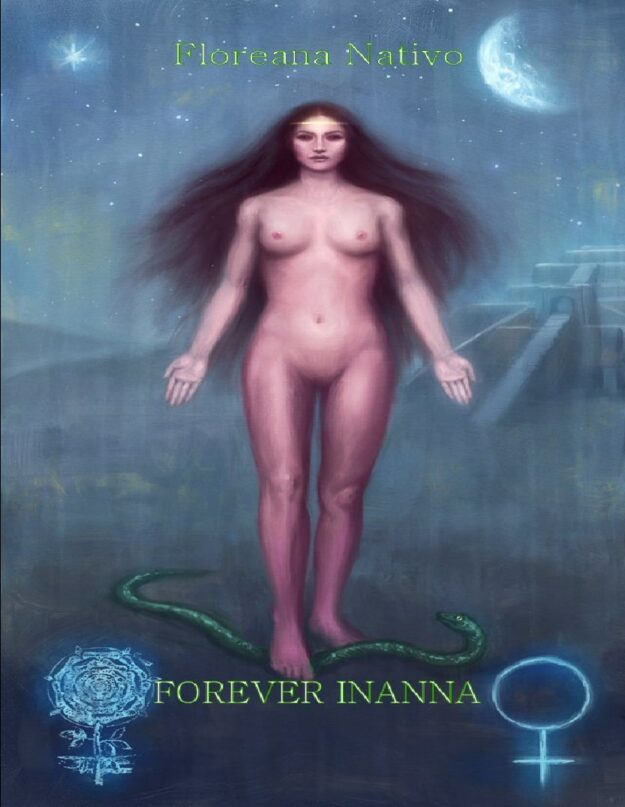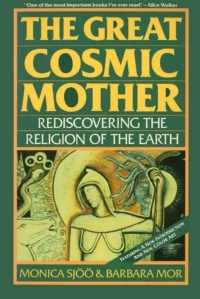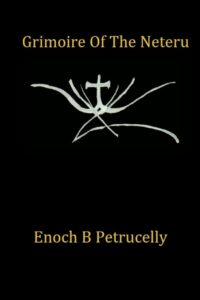“Forever Inanna” by Floreana Nativo

"This story begins with the first myths of the world, “when the earth was young and the gods walked among men.” It is the story of Inanna, the most ancient of all goddesses, and of the pantheon of the gods worshiped by peoples whose traces are lost in the mists of time: Mesopotamia, the Sumerians, the first people at the threshold of civilisation, and their gods, Enki, Enlil, Utu and indeed, Inanna, the star Venus.
A journey that begins with the creation of Man and follows the vicissitudes of the Gods, whose characters are often so similar to those of men they could be mistaken for them. An era in which vicissitudes of mankind are almost always due to the will and whims of their Creators. Yet the opposite is also true: how could there be a god if there were no one to worship him?
The myths, the legends come to life, and serve to explain events beyond the reach of intellect, to give a valid and unassailable justification of disasters and misfortunes.
These are the ancient stories of the world, like that of Sargon found in a basket in the waters who goes on to become King. Stories that the Hebrews heard over the years while held captive in Babylon and made their own, in the Bible.
The novel unfolds on two temporal planes: on the one hand the evolution of the ancient world, with Inanna as the central figure, and on the other, the discoveries of the sites in Mesopotamia from the nineteenth century up to the present day Italian expedition to Ebla, organised by La Sapienza University of Rome.
Through the archaeologists’ work, the roots of the history of the world come to light; a history that often repeats itself in its many myths. Along with Inanna, who will change people and name, we will discover that struggles for power exist among the Gods as well, and only those who know how to adapt along with the changes of history will survive. Thus the warrior goddess Inanna will become the goddess of love, of birth and of procreation. She will be called Istar, Ishtar, Atargatis and we shall follow her through time and space until she occupies the gate of Babylon and the heart of the new king of the gods, Marduk. Her characteristics will change, and along with representing the planet Venus, she will also be the Moon.
The sequence of events is re-lived, through documents and visions, by Gianna, an epigrapher who takes part in the Italian expedition to Ebla. She becomes the protagonist in the present day, with its uncertainties and turmoil and with some strange coincidences that pertain to her, anamneses of bygone eras that seem to appear at times in her memory, leaving her confused and fascinated at the same time. Gianna’s determination to find out as much as possible about the fate of Inanna/Ishtar leads her to make some risky choices, putting her academic career in jeopardy. The reason for such tenacity can be found in the name: Gianna is the oldest name that exists and derives from Inanna."









Comments and discussion can be found in the channel